By Sen WildeThe Spiral Goddess Collective stands as a beacon of Radical Community, a space where diversity, inclusivity, and empowerment are found at the heart of everything we do. Rooted in feminist principles and the celebration of divine feminine qualities such as collaboration, compassion, empathy and flow, we aim to challenge oppressive structures and foster a community where all individuals can thrive authentically. Cultivating a radical community within this unique space involves intentional practices that uphold our core values and drive meaningful change for our minds, bodies, spirits, and the world around us.
At the Spiral Goddess Collective, we embrace intersectional feminism, recognizing that wellness and healing deeply intersect with race, class, disability, sexuality, gender, and other aspects of identity. We offer something to our community that is rarely found in other places and spaces dedicated to fitness, wellness, dance, or yoga—a space that is inclusive of all bodies and identities, not just in word, but in practice. Our approach to yoga, movement, and community is queer—unconventional, radical, inclusive, trauma-informed, creative, and deeply rooted in connection. Radical queerness is about more than identity—it’s a revolutionary approach to life that questions and subverts traditional norms and binaries. In the quest for authentic healing and personal growth, embracing radical queerness offers a powerful catalyst for transformation. Radical queerness goes beyond the surface-level acceptance of LGBTQ+ identities; it challenges normative assumptions, disrupts oppressive structures, and celebrates the full spectrum of human experience. By integrating radical queerness into our communities, we foster environments that are truly inclusive, dynamic, and just. Radical inclusivity is the foundation of the Spiral Goddess Collective. It involves creating a space where all identities are honored and celebrated, and where diversity is seen as a source of strength rather than division. Cultivating radical inclusivity at the Spiral Goddess Collective involves a multifaceted approach that embraces all body sizes, gender identities, sexual orientations, abilities, and socioeconomic class levels. By fostering a space where all individuals are empowered to be their authentic selves and to work towards a more equitable world, we serve as role models for radical community building. Through our intentional practices and unwavering commitment to these core values, the Spiral Goddess Collective not only enriches the lives of its members but also contributes to the broader movement for social change. Cultivating relationships and connection outside the arrangements that our current culture presents to us can be a radical act in and of itself. Here, we recognize and emphasize the importance of interconnectedness, recognizing that true community is built on radical acceptance, radical inclusivity, and the authentic celebration of diversity. We recognize that diversity is not just about representation; it's about cultivating a community where everyone has the opportunity to thrive and contribute to the collective well-being. We invite you to come as you are and to discover that you are so much more than you’ve been allowed to be. We invite you to start healing your wounds so that together, we can participate in healing the systems and structures that cause these wounds. Transformative healing happens form the inside out and the outside in. When we move our minds/bodies together, we are stronger—we are a collective of power and potential! In addition to radically queer yoga, dance, meditation, and mind-body movement, we imagine our space as one of boundless possibility, where differences are not merely tolerated but cherished as vital components of a vibrant and dynamic community. In January, we initiated our Radical Careworkers Coven, bringing area healthcare practitioners, healers, and careworkers, together for networking and support. And here we are, co-creating CommuniTea Connections, embodying the essence of community building through the shared ritual of tea. Tea rituals, steeped in tradition and mindfulness, provide a space for individuals to engage in meaningful conversations, share personal stories, and build relationships across diverse backgrounds. This initiative brings people together in a serene and welcoming environment, where the simple act of brewing and sharing tea becomes a powerful tool for fostering connection and understanding. My personal hope is that opening space for these rituals and connections will help foster and encourage connection, diversity, inclusivity, personal growth and empowerment. My hope is to provide a safe space, a brave space, to explore one’s identity, express oneself freely and authentically, and regularly reflect on progress so that together we can create vibrant, resilient, and enriched space where everyone feels valued and empowered. By creating these intentional gatherings, CommuniTea Connections promotes a sense of belonging and solidarity, transforming the communal tea experience into a cornerstone of vibrant, understanding, and radically inclusive communities.
0 Comments
Even though I am relatively successful, I can’t help but feel like I am bad at business. In October of 2022, I opened The Spiral Goddess Collective, a Center for Mind/Body Movement. I cringe when I am referred to as the owner. I want to jump out of my skin when someone calls me an entrepreneur. Both of those terms are accurate, but they don’t feel like a good fit. They make me feel dirty, manipulative, and like an imposter.
I call the business of The Spiral Goddess Collective a not-for-profit because this too is an accurate term, even if it is not sanctioned by the world of business as such. My tax man instructed me that I have to make profit, otherwise the IRS will see my business as a hobby. But my definition of profit is different. I make profit so that I can give back to my community. My business is not-for-profit because everything that I earn goes back into the business. While I pay a portion of the money that comes in to the instructors and curators who teach classes and hold events, the money that comes in from the classes that I teach goes directly to business expenses (rent, internet, supplies, printing, software, etc) and my full-time job supplements the costs of operating The SGC. I don’t (yet?!) make money through my business, but we keep growing! Maybe someday I will make back my initial investments in this grand experiment, this dream, this community hub for embodiment and connection. The Spiral Goddess Collective is a business, but it is also my community service and my activism. It is my laboratory and my art studio that complements my academic work as a Professor of Transdisciplinary Cultural Studies. It is where I put theory into practice. The classes I teach and the workshops and events I offer are a part of this, but providing a space for others to offer their classes, events, and workshops is another big part. And providing this space and all of our offerings to our community at Pay What You Can/Sliding Scale prices is the whole. My university views my work at The SGC as a conflict of interest, and I have been trying to make the argument that this conflict is actually a benefit to the university, the community, and to our students. But the truth and reality of what The Spiral Goddess Collective is and what it does is not in alignment with policies written to attempt to limit greed, exploitation, and business as usual. * My mother told me that I should not tell people that I am bad at business. Maybe it is not that I am bad at business as much as it is that I don’t like to play by the rules that most businesses play by—the rules set by capitalism and intertwined with other oppressive systems and structures. And there are some business things I am pretty good at. In less than two years I have learned two different class management software systems. I’ve learned how to use a variety of other software programs and how to navigate a maze of aspects related to owning a business. I have built upon my skills, experience, and knowledge from my dual careers in academia and the world of fitness. I am highly organized and really good at making and managing schedules. I’m pretty good at website design and social media and program development. I’m good at communicating and valuing people. I can do a lot with very little and I am a multitasker in all things, but there are a lot of details to manage. There are too many things that I want to do for the business, but time is never on my side. Thus, the biggest reason that I am bad at business is that I have a full-time job as a professor—the kind of job that has no boundaries and a million expectations (and is particularly dangerous for people-pleasing overachievers who tend to lack boundaries!). It is the kind of job that can never be left at work; it always follows me home. My “real job” bleeds over into my work at The Spiral Goddess Collective, and it has threatened my health and well-being many times over the years. My job in academia is one of the reasons why I teach movement, dance, yoga, and fitness classes and preach self-care and embodied social justice. It is an attempt to find balance. * In my work at The SGC, I’ve tried not to confuse my desire to provide access with the martyrdom that sometimes comes along with preaching Pay What You Can/Sliding Scale options and offering full and partial scholarships. I want to offer everything for free, but there are bills to pay and friends in the business have told me that people can’t wrap their heads around free. Free means that something has no value. Free means that they are unlikely to invest in themselves. Free means that I don’t value my own worth. And what they tell me is evident in our culture: too many people want to buy into myths about weight loss. They want to be told that they can reach all of their impossible goals. They want to know how many calories they will burn; they want to see the results on their Fitbit or Apple watch. They want it all to be quick and easy. They want to punish themselves. They want to fit in and they want to stand out. They want superficial transformation—a body to envy. This is not what we are offering. I want to have more faith in people. I want to think that there is a different way of doing fitness and business as usual. And I think that we are beginning to see cultural shifts that will make what we offer at The Spiral Goddess Collective more valuable. I think that people are tired and need more rest and relaxation, deeper restoration, and support for their mind/body/spirit. I think people are disconnected—from themselves and from each other—and that they are looking for authentic connections and opportunities for embodiment. I think that people are searching for meaning and purpose and that they are looking for something different than fitness as usual and business as usual. * For all of the struggles, my work at The Spiral Goddess Collective makes me happy. Teaching what I want to teach, the way I want to teach it, in line with my principles and values, and supporting other people’s teaching makes me happy. When I opened The SGC I envisioned it as a collective and it has become more and more of a collective every month. I have generous, supportive instructors and curators who often give their time, money, and energy as well. And we have grateful members of our collective (aka: clients, participants, customers) who love our space, our vision, our mission, and our offerings. I am grateful for all of the people who make The SGC what it is—a unique center for mind/body movement. I want to believe that there are ways of doing business as not so usual, and I see the evidence of this possibility every day. We live in a class-stratified society. Some of us have more economic wealth. Some of us have less. Some of us have a lot more! And some of us have a lot less. And some of us have enough to live relatively comfortably, to meet our basic needs as well as some extras—like vacations and yoga classes!
Pay what you can/sliding scale pricing options are a way of contributing to economic justice. We want to promote dignity and belonging for all of our community members. Healing modalities and embodied movement options like yoga and dance are often expensive and not available to some of the people who need these services the most. We think that we all need these services and Sliding Scale/Pay What You Can Pricing helps us to be more inclusive and community-oriented. Pay what you can means that if you can pay more, please pay more and if you can’t pay, we have a scholarship program to support you. This economic justice initiative is on a kind of honor system. In other words, we trust you! We do not ask you to disclose financial information and we do not judge you for what you choose to pay (or not to pay). Instead, we ask you to make the payment choice that feels right for you. Some days Pay What You Can might be the lowest on the sliding scale; other days you might have some extra and can contribute to our scholarship fund. Let‘s break it down a bit more: How hard a person works does not translate into economic wealth; the system (white supremacist capitalist ableist patriarchy) exploits workers and relies upon a hierarchy that leaves some people without enough to meet their basic needs. If you can pay more, then not only are you paying for the services and offerings that we provide, you are also making it possible for someone with less economic wealth to experience these offerings and services. Please choose the higher end of the sliding scale prices and/or consider making a donation to The Spiral Goddess Collective Care fund. If you have enough, then please pay what you can and perhaps choose the mid-range of the sliding scale when you can and the low range of the scale most of the time. Sometimes, we fall on hard times—or we just can’t get unstuck. We think that our programs help improve mental and physical health and overall quality of life, so we also offer full or partial scholarships through The Spiral Goddess Collective Care Fund. Again, we trust you. It’s not easy to ask for help and we want to make it as shame-free as possible! WEEKLY CLASSES Our weekly Classes include a variety of dance, yoga, and meditation offerings and are available through a variety of pricing options including: Drop-in sliding scale $12, $15, $18 Spiral Punch Card: 5 classes for $59 Double Spiral Punch Card: 10 classes for $99 Caregivers Monthly Special Rate $68 If you provide care to others and need some extra support for your self-care, we invite you to select the Caregivers Monthly Special Rate. We will continue to offer The Spiral Goddess Collective Care Fund Scholarship. You can apply for this scholarship via this Google form, by emailing us at [email protected], or by filling out an application when you come in. We do not ask for financial information. We trust that you need this option if you ask for it. SPECIAL EVENTS Our special events provide an enhanced version of what we offer in our weekly classes. They are priced differently. In order to access the Pay What You Can/Sliding Scale options, when you register for an event, please use the following “promo code discount” to access the payment option that meets you where you are. $5off for $5 off the total price $10off for $10 off the total price $15off for $15 off the total price $20off for $20 off the total price SGCCF for a full scholarship (please contact [email protected] for this option) * We think that the programs that we offer have a high value, but we also want to make them more accessible to all of the members of our community. 100% of our profits at The Spiral Goddess Collective go directly back into the business and donations to community organizations that are in line with our mission and vision. Many of the Curators at The Spiral Goddess Collective choose to donate a portion of what we make so that we can provide our services and offerings to more people in our community. Pay what you can/sliding scale pricing is an economic justice initiative. We appreciate you choosing the price option that best fits what you can pay for our services. * Here are a few more deals for the month of May*: Write a Google Business review (from 5/1/24 to 5/31//24) and receive a promo code for 20% off any one-time purchase. Bring Your Mom to Sonic Yoga Nidra on Mother’s Day (May 12) and purchase a Spiral Punch Card for half price! Bring a friend to class (their first class is free) and you both receive 20% off your next purchase (good from 5/1/24 through 5/31/24). Attend one of our weekly meditation classes (Yoga Nidra Monday at 4:30pm and Meditation for the Mind and Body Wednesday at 6:00pm) and receive 20% off your next purchase (good from 5/1/24 through 5/31/24). *One offer per member (if you come to The SGC you are a member!). Must purchase in-person or email us for the promo code. 4/24/2024 0 Comments Finding the Way to RestThe life-changing power of yoga nidraBy Emma Rose
Desperate 3 a.m. decisions rarely change lives for the better. Kathryn Mikkelsen’s first experience with yoga nidra is an exception. In many respects, her story is a familiar one. A teacher for grades 7 through 12, Kate was deep into burnout and had been running on empty for weeks. She was and is the kind of person who gave of herself, but she felt like she had very little left. Add to that the trauma of living in Japan during the 2011 earthquake and subsequent evacuation, and Kate’s nervous system seemed permanently stuck in overdrive. So at 3 a.m. after a marathon of insomnia and fitful sleep, Kate surfed the internet looking for something, anything that would help her relax and finally turn off her brain. What she found was yoga nidra — a style of guided meditation that brings practitioners to a deep state of rest. “It was like a Hail Mary attempt. I just picked a thumbnail that looked pretty. The guide had a lot of followers, and I was like, that seems legit, let's give it a try. And it turned out to be the best thing I've ever done in my life.” That first yoga nidra meditation didn’t just help Kate finally fall asleep. Over weeks and months she used the guidance to regulate her nervous system and learn how to really and truly rest. Today she’s a yoga instructor at the Spiral Goddess Collective in Bangor, Maine and on the Insight Timer Meditation App. The Transformation Begins The transformation from stressed-out school teacher to centered meditation and wellness coach took years, but it all started with that first YouTube video from a guide and teacher named Ally Boothroyd. “I completely fell in love with her voice and the experience. I practiced every day and I fell asleep every day. It took me about four months before I could stay awake until the end of a meditation. And then I realized, oh, there’s a lot more going on here than just helping me sleep.” She started to notice shifts in her thinking and overall mental state. Her mind and body seemed more connected. She was less reactive and, best of all, she was sleeping through the night. “I got very curious, because I like to try new things. I thought: this is so great. How come I've never heard of it?” So she joined the teacher training to learn more. Yoga Nidra teacher training, at least the kind Kate pursued, tends to be an immersive experience. You’re encouraged to go at your own pace and really deepen your practice along the way. “When I started the teacher training, I thought I had a pretty good handle on what yoga nidra was. About two months into the training, I realized I was like a snowflake on that iceberg. It goes so deep and there's so much potential in this practice.” She’s been exploring that potential through her personal practice and guided offerings ever since. Yoga Nidra--A Unique State of Consciousness Along the way, Kate has adjusted her definition of what Yoga Nidra is. “I thought it was a type of guided meditation where somebody makes a script and reads it and another person listens and has a beautiful experience. But what I learned is that yoga nidra is actually a state of consciousness that is a combination of your body being deeply relaxed, similar to sleep, while you are still fully aware and alert. So it's a unique state of consciousness in between sleep and waking.” It’s a state that many people in the modern world never quite access. With smart phones, 24-hour news cycles, and the demand to be always on keep nervous systems on high alert, the connection between mind and body frays and often it takes a medical emergency to make someone slow down. In a world that desperately needs yoga nidra, it seems that few have ever even heard of it. Fortunately, scientists and researchers are starting to pay attention. Neuroscientist Dr. Andrew Huberman has incorporated some of the wisdom of yoga nidra into his non-sleep, deep rest (NSDR) protocol. One of the biggest advantages of yoga nidra is that it’s a completely drug-free intervention. The practice doesn’t require special tools or skills. As Kate says, “If you've ever fallen asleep, you can do yoga nidra.” Of course, the same cautions apply as with any meditation practice. Meditation can sometimes bring up difficult feelings, especially for people who have experienced trauma. If you’re actively in distress, other strategies might need to come first. You also need a quiet, undisturbed place to practice, which is why in-person classes like those offered at The Spiral Goddess Collective are especially valuable. The studio is a serene, welcoming space to practice away from the tasks and demands of home. As a bonus, practice happens among other people who are also seeking rest and peace in their lives. Yoga Nidra at The Spiral Goddess Collective The Spiral Goddess also hosts weekly classes in seated meditation, JourneyDance—a transformative movement practice, cardio dance, Kukuwa dance, and yoga. Special sessions include networking groups for radical careworkers, intentional tea service, and sonic yoga nidra, which combines yoga nidra with a sound bath played on crystal singing bowls. For upcoming yoga nidra meditation sessions visit The Spiral Goddess Collective’s Class Schedule or Kate’s website. Some History and Vision and a Platform for Future DevelopmentsOnce a month we gather together radical careworkers at The Spiral Goddess Collective to network, socialize, and talk about what we do and how we can support each other. We also share our gifts and offerings with each other through the opportunity for an embodied practice and/or activity. We welcome anyone in our community who identifies with this category of work--radical careworker. This blog is a short overview of the origins of this group and how we define ourselves and our work. When I first started thinking about The Spiral Goddess Collective, I brainstormed it as a Mutual Care/Scholarship Program that I would create to provide scholarships for people who could not afford to take yoga and conscious dance classes in the Bangor area. I also intended to eventually provide training for dance fitness instructors. I was basically going to use my own money and maybe think about getting others to donate and maybe think about starting a non-profit.
Fast-forward a bit as I continued to build my skills and became a JourneyDance guide (which brought me some woo-woo powers and perspective!) … After putting this idea out into the universe and starting to run this idea by people for feedback, I was looking for space to teach JourneyDance (the YMCA was okay, but it felt limiting to the potential) and very suddenly had an opportunity I had only dreamed about for most of my adult life–SPACE! Space to offer my version of “fitness,” a mind/body approach, an embodied approach. Within a few months, and with the help of friends, I opened the doors to The Spiral Goddess Collective, a Center for Mind/Body Movement on the 4th floor of the historic building at 16 State St. in Bangor, ME. I imagined a collective, but I didn’t know how that part was going to happen! Slowly, the space started to gather people to it… I knew some people; other people found me and started curating offerings. One day, I connected with Shannon Charette and we talked about our work and we both had the desire to connect people who were passionate about multimodality healing, getting beyond talk therapy, getting into the body, etc. It took some time to get the first gathering of Radical Careworkers together… I found Sen Wilde or Sen Wilde found me or both and we talked about all of the things that could happen in the Spiral Goddess Collective space. Sen helped me when I was about to collapse from trying to do all of the things to keep SGC going. They took up the labor of cleaning and maintaining the space, and daily Facebook posts, and so much more. I have created and fostered and supported the parts of my vision that I have the skills and talents to build (though I had to learn a lot about “business”–that is not my skill set!)... and I have supported the work of other people–curators, guest curators, and community partners–but I also wanted to create a larger collective, a network of providers… what I envisioned as a Radical Careworkers support group. This group is inspired by my work in the emerging field of Embodied Social Justice: Literal and figurative movement (mind/body, cultural/social) toward justice, healing, and transformation of individuals and communities, systems and structures, and the earth and all its beings. It is radical in the way that Angela Davis explains, “grasping things by the root.” Radical encourages growth. Radicals are pathbreakers and deviate from the status quo. Radical work does not just treat the superficial symptoms, it makes big changes to entrenched structures. (I love this article about what radical is from Teen Vogue) The Spiral Goddess Collective Radical Careworkers networking and support group was an attempt to bring us together because we complement each other, and as a network, as a collective of radical careworkers, we can support each other as well as the people we care for. We have power, purpose, magic, and superpowers. So it is fitting that we decided at our second meeting to call this collective of radical careworkers a coven! Coven is an apt word for a variety of reasons. Of course, it has the connotation of witches, who have been mostly women, though not exclusively. In the past, witches were targeted by state violence, seen as threats by men who feared the powers of witches–which were often powers of knowledge about the human body, herbs, plants, remedies, and connections with the earth and natural healing. Witches were often the glue of communities; their power undermined the status quo of patriarchal society. In her book The Spiral Dance, Starhawk describes: “A coven is a group of peers, but it is not a ‘leaderless group.’ Authority and power, however, are based on a very different principle from that which holds sway in the world at large. Power in a coven is never power over another. It is the power that comes from within. . . . One person’s power does not diminish another’s; instead, as each convener comes into her own power, the power of the group grows stronger.” “Power,” Starhawk explains, “depends on personal integrity, courage, and wholeness. It cannot be assumed, inherited, appointed, or taken for granted, and does not confer the right to control another. Power-from-within develops from the ability to control ourselves, to face our own fears and limitations, to keep commitments, and to be honest. The sources of inner power are unlimited.” We are powerful. What we do matters. And what we build together can transform individuals and our community and so much more…. On Thursday, July 27, I am offering a JourneyDance class at the Wilson Center in Orono. The Wilson Center is “an independent, progressive religious and spiritual organization” that “aims to build community for spiritual exploration and multi-faith dialogue.” For this JourneyDance and potluck event I put together a special “Mindbodyspirit” playlist and have been thinking about the context of spirituality in JD and in my life and life’s work.
I. I have never described myself as a spiritual person. I was raised Presbyterian, but religion never resonated with me. Church was a drag, except for the donuts. Sometimes I envy people who believe in God, who have an anchor to what I consider to be the unknown and the unknowable. Sometimes I would imagine what it would be like to be able to say, “I’m not religious, but I am spiritual.” Sometimes I would joke that yoga was as close as I got to church; I taught most Sundays and it’s as close to a spiritual practice as I have ever gotten. Perhaps I would connect spirituality to my relationship to nature, mountains, the ocean—the vastness of the universe. A love of science fiction is, perhaps, a kind of spiritual practice? It wasn’t until I participated in JourneyDance that I began to participate in what I might describe as spiritual practices. And I began to see other aspects of my life’s work as spiritual. Before JourneyDance, I took an Embodied Social Justice certificate program through The Embody Lab and was introduced to the work of Rev. angel Kyodo williams. If I was going to be religious, I would probably choose Buddhism, but all religions are too structured and too limiting for me. For a short time, I investigated Paganism, which resonated in many ways. And when I recently read a bit of Starhawk’s classic The Spiral Dance, I found that many of her descriptions of witchcraft—in history and in practice—resonate with the teaching I do in and out of academia. But, nothing speaks to me as a whole, contained spiritual belief system. Like my interdisciplinary academic work, I take bits and pieces from a variety of sources and cobble them into something that resonates with me and remains flexible. This approach is not unlike Octavia Butler’s creation of Earthseed (which is now a “real religion”) in her Parable duology. Her character, Lauren Olamina, an empath raised in the strict religious practices of her Baptist father, collects truths from a variety of sources and leads her followers through dystopic landscapes as Shaper. My students have likened me to Olamina, but I would not be so arrogant as to make this comparison myself. And yet, I am a “natural leader,” an empath, and a visionary and the power that I hold is not unlike what Olamina wields (collecting ideas, writing, taking care of people, providing opportunities for education) or what Starhawk describes as a “power that comes from within” and that “is never power over another.” Instead, it is a power that helps to grow the power of others and depends upon “personal integrity, courage, and wholeness” and “encourages healthy pride, not self-effacing anonymity; joy in one’s strength. Not shame and guilt.” This is the power—and the path—that JourneyDance has helped me to embrace more fully. II. Through The Embody Lab, I was also introduced to the work of Staci K. Haines and her book The Politics of Trauma. In addition to describing “the ever-expanding universe, the energies, beyond human, that we are living with,” she also explains spirituality as “a connection to something more vast, felt yet unknown.” Around the same time, I was introduced to the work of yoga therapist and psychologist, Gail Parker, who describes spirituality as “an ideal that lifts you beyond your everyday struggles and helps you clarify, reflect upon, and understand life from a deeper perspective, and to live more artfully.” All of these ideas about spirituality turn up effortlessly in my JD teaching, which is an art that I feel my way into. When Haines writes about spirituality, she is also writing about embodied transformation as “ways of being, acting, and relating [that] are aligned with what [we] most care about.” Gail Parker expands on this idea as she explains: “The spiritual dimension refers to our relationship to the beliefs, ideals, values, and principles that we live by; this dimension determines how we operate on the other dimensions [physical, mental/emotional, social] and how we make sense of the world.” Before JD, I had largely made sense of the world intellectually. I would push away anything that felt too woo-woo. But my JourneyDance training came about through an unbelievable string of synchronicities that cannot be dismissed as mere coincidence. People of faith might explain my experience with other words, but I can only say that there was a spiritual dimension that I have continued to explore through movement, meditation, oracle cards, and an open mind to learning more about myself and my purpose—education, embodiment, and empowerment—and the path that I walk, or dance, through this life. Gail Parker explains that “it is by connecting to this higher state of consciousness that you begin to reconnect to values that express your internal truth, allowing you to create meaning for yourself and make sense of things.” And this is the key to a spiritual life for me—this reconnection and the creations that have been birthed from my desire to “make sense of things.” The Spiral Goddess Collective is one of these creations and each JourneyDance playlist is a stepping stone on this path that has no destination, only process. III. This “Mindbodyspirit” playlist brings together some of my favorite songs and practices from other playlists and provides a variety of ways of considering the connections between mind, body, and spirit. The titles of the songs for the first few tracks speak for themselves: “For My Soul”; “Waking Up”; “Gold Flow”; and “My Mind” take us through a welcoming of our mindbodyspirit, connecting to our internal truths, to seeing the bigger picture and connections between the individual and the structural, feeling the full weight of our bodies on the earth, and appreciating the portal of our minds. We start to connect to each other through Trevor Hall’s “2 Oceans” and Lakeside’s classic “Fantastic Voyage.” The former resonates with spiritual vibes and the connections that make us human regardless of which ocean we find ourselves by. The latter taps into the sci-fi quality of the fantastic, but also into the power of pleasure in our bodies and collective celebration in “the land of funk.” We then turn to one of my favorite process song, Milkman’s “Controversy,” which layers The Beatles and Tupac, Eminem and Britney Spears, and other artists who invite controversy for a variety of reasons. We play with ways of embodying masculinity and femininity and exploring the spaces in between these culturally polarized opposites. Our bodies anchor us to these energies that our culture pits against each other and we break out of those constraints by employing mind/body connections and exploring a third space of possibility. A couple of songs directly engage with more religious connotations of spirituality: “Praising You” and “Save our Soul.” The first takes Fatboy Slim’s classic and gives it a feminine party vibe. In the second, we tell our story to the dance floor through Lexxi Saal’s soulful exploration of the state of our individual and collective souls as we navigate the challenges of this world that we live in. From here we turn to an extended process of climbing a mountain to a clearing where we find our favorite place (real or imagined) and meet our inner guide for a JourneyDance ritual of parts work exploration. Through this ritual we discover what we need to know in the moment, but also that we have a wealth of wisdom within us already and that we can access this inner wisdom whenever we want to. In the last section of class we explore all of our senses and sensuality as we dance to Annie Lennox’s version of “I Put a Spell on You,” which brings us back to ourselves, reminding us of all of the ways that we avoid getting too close to the parts of ourselves that we fear, but that we belong to ourselves and deserve to love our whole selves, even if we have to use enchantments to find that self-love and self-acceptance. And finally, we connect back to the power of nature with Lo Wolf’s “Be Like Water,” a repeating mantra that connects us to all of the ways that we can be like water as we flow around obstacles in our path, carve new possibilities, nourish ourselves and others, and expand and contract to meet the circumstances. We sink back into the earth and into ourselves, contemplating the ever-expanding universe through two instrumental pieces: “Writing Poems” and “My People Have Deep Roots.” This is just a glance into the bigger picture and deeper meaning of this particular JourneyDance playlist. Each playlist is unique even as it follow the flow created by Toni Bergins. And each time we come to the dancefloor, the journey is unique to the moment we find ourselves in and the people we find ourselves with, even if the playlist is the same. Part of the reason I opened this space was to offer something to our community that is rarely found in other places and spaces dedicated to fitness, wellness, dance, or yoga—a space that is inclusive of all bodies and identities not just in word, but in practice. I wanted to bring my particular approach to yoga and movement, which is queer—unconventional, radical, inclusive, trauma-informed, creative, and “deeply rooted in truth, love, and justice,” as Jacoby Ballard describes (and as I quote in part 1 of this blog). There are many ways to be queer, and one way is to challenge gender binaries and social and cultural norms of all kinds.
Many gyms draw strict gender lines with offerings for men and women, reinforcing stereotypes that weight rooms are for men and group fitness classes are for women. Locker rooms where you have to choose to identify as “man” or “woman” will likely feel unsafe if your appearance is gender non-conforming. Some yoga classes offer a certain pose variation “for men” or “for women” and reinforce binaries of gender. The music used in a lot of classes reinforces heterosexual narratives about love and romance and stereotypes about men and women (and boys and girls). Further, many group fitness classes are populated by people who are thin and already “fit” and fat bodies are conditionally welcomed into that space if they want to lose weight, as if this is the only goal of moving one’s body. The messaging in and around group fitness is largely about losing weight—about changing your body to be more “fit” or “healthy,” which ultimately means more socially acceptable. But “fat” is not just a physical weight we carry; it is often related to trauma—the psychological weight we carry. And narrow cultural norms reinforce the psychological weight that queer people, and all socially unacceptable people, carry. Before opening The SGC, I taught fitness classes for over a decade at a community non-profit where I did not feel comfortable being out (and I taught fitness classes elsewhere for many years before I was brave enough to consider myself queer). I was discouraged from including “political” messages in my classes and promotions for classes. I taught a program where I was required to use music that often had lyrics that I found to be offensive to women and to reinforce stereotypes related to race and sexuality. But it was deemed “clean,” and context was ignored. Still, being in my fat body, leading a class, was the least I could do to push back again one of the norms of fitness spaces. More than once a new participant walked right past me to talk to the thin woman they thought must be the instructor. Too often, we are unaware of the limited scripts we participate in on a daily basis and most gyms and fitness centers prefer not to have these societal corsets pointed out. One of the worst examples from this past teaching gig is something that happens all the time in mainstream/corporate America. One day I walked in to the facility to witness a large, masculine person teetering around in high heels and “acting” like the female CEO because he had won the honor of “CEO for the day.” The staff filled the lobby as everyone laughed and cheered for this offensive display, which was probably considered to be a light, fun team-building activity. I felt extremely uncomfortable as I passed through to teach my class and imagined what it would be like to be trans and witness that display. I debated for weeks about whether I should say something to my supervisor or just let it go. I still regret that I let it go. So, opening The Spiral Goddess Collective is also an opportunity for me to be more brave, more open, and more in line with my values. This is part of “the potential for queer identity,” what Mattilda Bernstein Sycamore describes as “the radical potential to choose one’s gender and one’s sexual and social identities, to embrace a radical outsider’s perspective, to create a culture on our terms, and to challenge everything that’s sickening about the dominant culture around us.” The Spiral Goddess Collective embraces a radical outsider’s perspective. Despite a name that is feminine, and perhaps makes people wonder if men are allowed to attend classes and events at The SGC (the answer: of course they are and they do!), our space is pushing up against the boundaries of the norms of fitness spaces as well as the norms of social justice movements. The Spiral Goddess is not just a symbol for women—it is an archetype that informs what we birth into the world, how we use our energy, how we treat ourselves and each other, and how we connect our inner and outer worlds. Feminine qualities and values like collaboration, compassion, empathy, nurturing, and flowing are seen as weaknesses. Women are expected to work out to get hard, but not too hard. To be thin, but still curvy. We compete against ourselves as much as the other women in the room. And, women and femme people of all genders, have been excluded, abused, and threatened in fitness spaces (and the larger culture), to say the least. Men are made to feel like they have to be stereotypically masculine (competitive, linear, logical, assertive, independent, controlling), which just adds to the problems of our patriarchal world and the mental health problems of men, women, and children and everyone outside of these gendered categories. Individuals are forced to choose one side of the gender binary or to push back as non-binary, both of which can lead to violence against ourselves and others. At The SGC we embrace the radical, political meaning of queer and practice radical acceptance—we invite you to come as you are and to discover that you are so much more than you’ve been allowed to be. We invite you to start healing your wounds so that we might also heal the systems and structures that cause these wounds. Transformative healing happens form the inside out and the outside in. When we move our minds/bodies together, we are stronger—we are a collective of power and potential! Queer is a reclaimed word. It is an umbrella term and denotes a spectrum of identities and sexualities that have been marginalized and demonized. I like this term because it is inclusive, political, and ambiguous; and the word also means unusual, not normal, odd, eccentric, and unconventional. To queer something, as Jacoby Ballard describes, is to “critique, challenge, and transform toward something more radical—that is deeply rooted in truth, love, and justice.” In this way, The Spiral Goddess Collective is a queer enterprise. And there are many ways to be queer.
Despite my professional life as a professor and fitness instructor—both things that appear to be the realms of the extrovert—I am a shy, introverted, home body who likes to spend time by myself—usually with a book and preferably with a cat or two or three. I’m not the type to yell from rooftops or wave a flag in a parade regardless of how passionate I am. When Hannah Gadbsy asks where the introverted queers are in her brilliant stand-up special, Nanette, I whisper “right here” and feel seen. When I filled out the forms to propose Bangor Pride Events—a Queer Yoga/Yoga Outside the Box event on June 17, First Friday Free Dance on June 2, and a table among the vendors at the Pride celebration on June 24, I was reminded about how much anxiety can come from inclusion and visibility. I’m sure I am not the only introvert who feels this anxiety when they are asked to expose semi-private parts of themselves toward a bigger cause. And yet, brave acts by marginalized people have created social change and continue to transform our world. I would like to be so brave, but my role is to support and facilitate. And I am far more comfortable behind the scenes. I have offered several events at Bangor Pride in the past through my role as a professor at UMA-Bangor. But now I offer these events through The Spiral Goddess Collective, a Center for Mind/Body Movement. Part of my desire to participate in Bangor Pride is to bring more visibility to the space and our offerings. We are a space where members of the LGBTQIA+ community can come for dance and yoga and healing modalities that are inclusive, trauma-informed, and social justice-oriented. And The SGC is a space where we want everyone to feel welcome. We are not simply a yoga studio; we are a center for mind/body movement. What we offer at SGC is not an ordinary approach to "fitness," dance, or yoga—it is something deeper and it is difficult to get people to come try something new, especially something that requires vulnerability and self-reflection. As Jacoby Ballard argues, queer and trans people don’t often have “the opportunity to be in their bodies as their whole selves” and a queer approach to yoga (and JourneyDance!) “creates expansion and spaciousness.” The Queer Yoga/Yoga Outside the Box event on June 17 is partially inspired by Jacoby Ballard’s book A Queer Dharma: Yoga and Meditations for Liberation. We all deserve to be in our bodies as our whole selves and this is one of the goals of SGC. Our work is inspired by a desire to make a difference in our community. We offer scholarships and encourage people to pay what they can. We offer a space where people can come together toward embodied wholeness—movement that isn’t about meeting the demands of dominant culture, but meeting ourselves where we are. Yesterday I realized that Monday is our 6 month anniversary at The Spiral Goddess Collective, a Center for Mind/Body Movement! In celebration, everyone who attends a class this week gets a free SGC sticker (1 per person) and gets their name entered into a raffle for a grand prize for each class. This includes all of our classes from today, Sunday, April 2 through Saturday, April 8, including First Friday’s Get Embodied! event: Dance Yourself Free!
As we look back over the past 6 months, I offer a quick look at what we have been doing, some feedback we have gotten, and some frequently asked questions. We’re always happy to get questions, comments, and ideas as we continue to expand and hone our offerings. And I am so grateful for all of the support and excitement that we have shared and will continue to build upon! Here’s some of what we have offered in these last six months: 249 classes and workshops 8 Spiral Punch Cards via The Spiral Goddess Collective Card Fund Scholarship 3 additional scholarships for Spiral Series workshops 40 comps for first-time visits Here is some of the repeated feedback I have received in the 6 months since The Spiral Goddess Collective opened its doors. What a beautiful space! I agree! It was beautiful before we decorated and filled the space with feminist art, a Girls on Fire lending library and Mind/Body resource center, plants (and more plants), oracle and tarot decks, a comfy hang out area, a family heirloom tea set, chaga tea and snacks, lights, color, and positive energy! Your website is a little bit overwhelming. Yeah. I don’t really do anything half-way. I plan to simplify a little bit and make some of the more pertinent information easier to find, but I have a lot to say and the website reflects that! If you’re confused, just ask! (Many of you have asked! Thank you!) One of the songs and mantras that we dance to in JourneyDance is “You Are Enough,” but I struggle more with the feeling of “you are too much,” compounded with the feeling of not enough. I am an over-thinker, an over-explainer, and I’ve been told that I am “scary” and intimidating. Sorry, not sorry. But also, I’m working on it! Thank you for being you! Wow, what a compliment! I mean, I’m not trying to be anyone else, so it’s good to be seen and appreciated! Thank you for creating this space in our community. My pleasure! Creating this space is a dream come true and being able to share it with other curators and with the community is the best part! Here are some Frequently asked Questions: Can men attend classes at The Spiral Goddess? Of course! Men do attend classes at The SGC! In the world of group fitness, yoga, and fitness dance, every space that I have been in has been dominated by women (the opposite is true of weight rooms). Our culture is segregated and full of stereotypes that keep people boxed in. People gravitate to where they are most comfortable and we want everyone to be comfortable at The SGC. Your gender identity is not what defines you in our space. But one of the things that is different about The SGC is that we aim to create an environment where feminine qualities and feminine energy are valued and celebrated: connection, empathy, compassion, community, letting go of competition, nurturing, flowing, caring, feeling, understanding, and supporting each other. We all have feminine qualities regardless of our gender and if these qualities were the most valued in our world, it would be a much better place. How much does it cost to take classes at The SGC? Yeah, so here’s that tendency toward “too much” and what might seem like an overwhelming amount of options. We aim to meet each person where they are. So, the short answer is $10 a class. But, we have sliding scale prices and people who can afford to pay more do so. And we have punch cards that reduce the per-class price. And we have memberships that help to support our mission and vision and to fund The Spiral Goddess Collective Care Fund, a scholarship that provides the opportunity to attend classes at no cost to community members who cannot afford to pay for self-care and healing modalities. So, if you are unsure what to pay, please just ask! Why can’t I get the App to work? I don’t know! There are many great aspects of the Mindbody App, but there are a lot of little issues that I don’t have the time or skill to fix. We’ll keep working with it for at least another 6 months! You don’t have to use the App—just email, message, call, or drop in and we will work it out! The Salt Eaters, a 1980 novel by Toni Cade Bambara, opens with a healer, Minnie Ransom, saying to her patient, Velma Henry: “‘are you sure, sweetheart, that you want to be well?’” Velma, an activist, mother, and wife, has attempted suicide and she is having trouble holding onto herself, let alone the stool she is perched upon. Later, Minnie continues, “‘cause wholeness is no trifling matter. A lot of weight when you’re well.’” Staying well is a challenge even in the best of times and circumstance. Being well requires work, patience, self-compassion, and resources. The struggle is real. As Susan Raffo argues, “healing is dangerous work. Healing is about going into the struggle.”
The struggle to be well is neither a straight line nor a quick fix; in fact, as Leah Lakshmi Piepzna-Samarasinha, argues in her book, Care Work: Dreaming Disability Justice: “the idea that survivorhood is a thing to ‘fix’ or ‘cure,’ to get over, and that the cure is not only possible and easy but the only desirable option, is as common as breath.” We want to believe in cures because this is an idea that our culture feeds us, and our healthcare system supports the idea that a pill or a procedure can cure whatever ills us. In Who Is Wellness For? Fariha Roísín argues that “In the worlds of health and wellness, there’s an inconsistent belief that if you try hard enough at something, eventually you will see results.” Just lose a little bit of weight. Just eat organic whole foods. Just exercise three times a week. Just take this prescription. This isn’t bad advice, and wouldn’t it be nice if being well was just this easy? But what if, as Susan Raffo argues, being healed or cured is not what we should be seeking, but instead, what if “struggling better is the goal”? Many of us avoid struggle as often as we can. If we are struggling, our culture tells us, then there is something wrong with us. But the idea that we can avoid struggle, just like the idea that we can find a cure or heal completely from our trauma, is a myth. As Piepzna-Samarasinha reminds us, the idea that we can be fixed or cured is “a concept that has deep roots in ableist ideas that when there’s something wrong, there’s either cured or broken and nothing in between.” But there are a lot of spaces and possibilities between broken and healed—in these spaces there is room to move, to shift, to transform. As Roísín writes, “Healing is an everyday practice that requires personal resolve and diligence [and] relies on reworking, reweaving, and reimagining what it looks like to feel safe and at ease with oneself.” We have to think differently, but we can’t just think our way out of trauma. We have to engage our bodies as well as our minds. In fact, when we engage the body/mind, the results are far more powerful. We pursue all kinds of ways of finding ease, often deferring, deflecting, dismissing, detouring, avoiding, ignoring, replacing. Sometimes these coping strategies are just what we have to do to get through our day, our week, our life, and that’s okay. It is hard work to venture toward wellness and the path is circuitous and often hazardous. As Melissa Febos writes in her book, Girlhood, “It is slow, and there is no shortcut. . . It is sometimes painful and often tedious. . . . it requires consistent tending. We must choose it over and over.” And we cannot choose heling or wellness all alone: “A lasting, conscientious change in the self is similar to one in society.” We need to do the inner work and the outer connection. This is where JourneyDance comes in. In JourneyDance, we move our bodies in ways that help us heal emotional wounds. We loosen up trauma that has become wedded to our bones and tissues, embedded in our mind/body/spirit matrix. More than one participant has told me that JourneyDance has helped them make deeper and quicker progress toward healing than they were able to find in talk therapy and other attempts at healing that do not address the mind/body connection. This, too, is my experience with JourneyDance. We often say: “you have to feel it to heal it,” and the mind often wants to control the process and intellectualize it. But when we dance, we can’t help but feel what we feel and what we find sometimes surprises us. Melissa Febos writes a lot about the body and about her journey to overcome addiction and to work toward wholeness. She writes, “When I think about healing in the abstract, I imagine a closing-up, or a lifting-up. In my fantasies, healing comes like a plane to pull me out of the water. Real healing is the opposite of that. It is an opening, a dropping down into the lost parts of yourself to reclaim them.” We can’t rely on external factors to drag us out of our mire; in JourneyDance, we drop into the deepest parts of ourselves and claw our way back into the world to struggle another day. And another day. And another. And we become more powerful and more empowered. Before I found this healing modality, my introvert tendencies convinced me that I could work toward healing and wellness mostly by myself. Reaching out to other people was (and is) a huge part of my process, but reverting back into my shell often feels like the easy way out. JourneyDance provides a sacred space where we can be alone and together; we can work on our own stuff, but we can also hold the space for other people. I created The Spiral Goddess, a Center for Mind/Body Movement, to be more than just a space to do yoga and dance and move our bodies in the pursuit of health and wellness. It is a space for healing and processes that take a commitment to our own mind/body/spirit as well as to that of the collective. When we change ourselves, we change the world. This cannot be overstated. As Minnie reminds us in The Salt Eaters, “‘got to give it all up, the pain, the hurt, the anger and make room for lovely things to rush in and fill you full’” (16). There’s nothing wrong if we “‘want to stomp around a little more in the mud puddle . . . like a little kid . . .Nothing wrong with that’” (16). We’re all just stomping around in the mud, and there’s nothing wrong with that. But when we can harness our play toward healing, rather than toward distraction or avoidance, the possibilities abound. JourneyDance lets us play, experiment, explore, push and pull, open and close, mimic and create. Each time we return to this practice, we find new things about ourselves and new possibilities for our lives. We don’t have to ask, or be asked, if we want to be well because we are already moving toward—not a destination, but a weigh station—and our hearts, minds, bodies, and spirit are carving a journey where we can enjoy what we find along the way. |
CategoriesAll Academia American Fitness Art Business Care Work Careworkers Creativity Cultural Politics Fitness Guest Blogs Language Meditation Mind/body Self Care Self-care Social Justice Space Transformation Trauma Women And Fitness Yoga Archives
June 2024
|
|
|



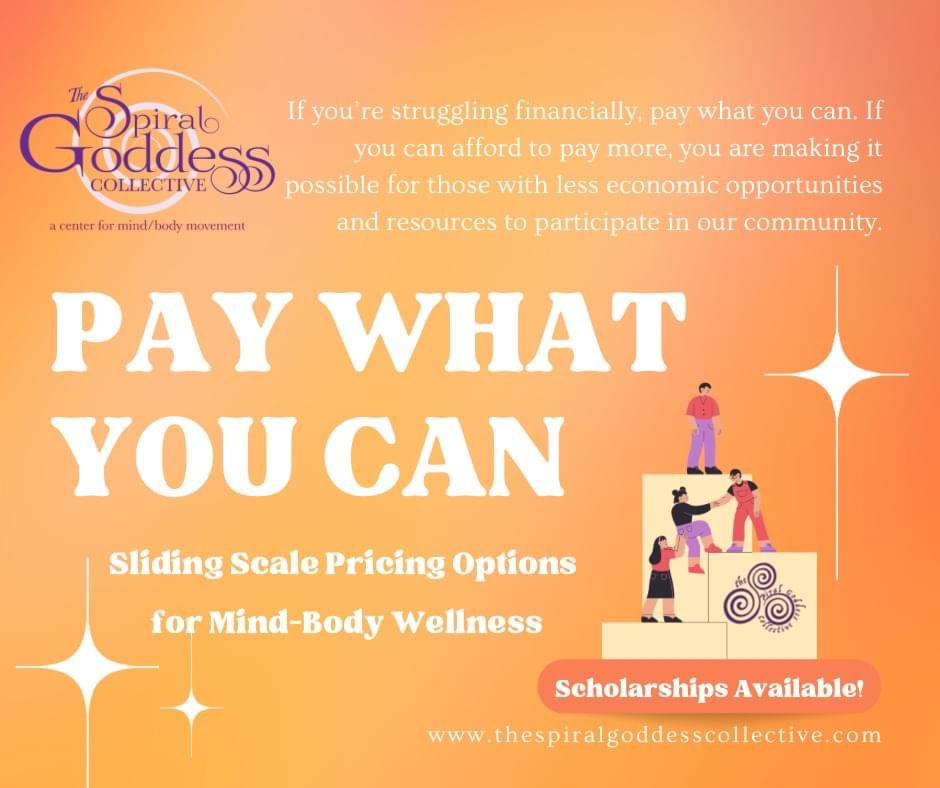
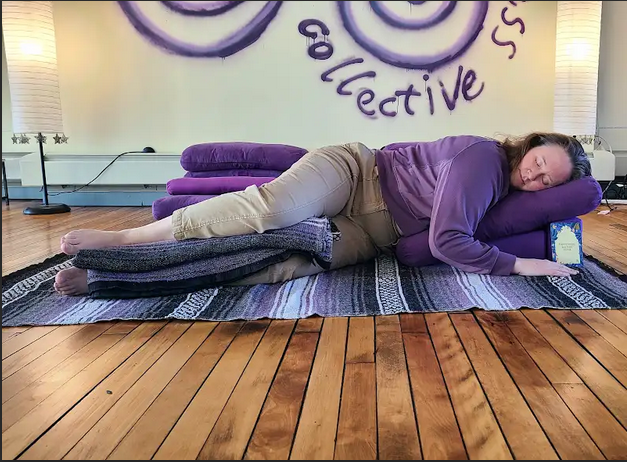
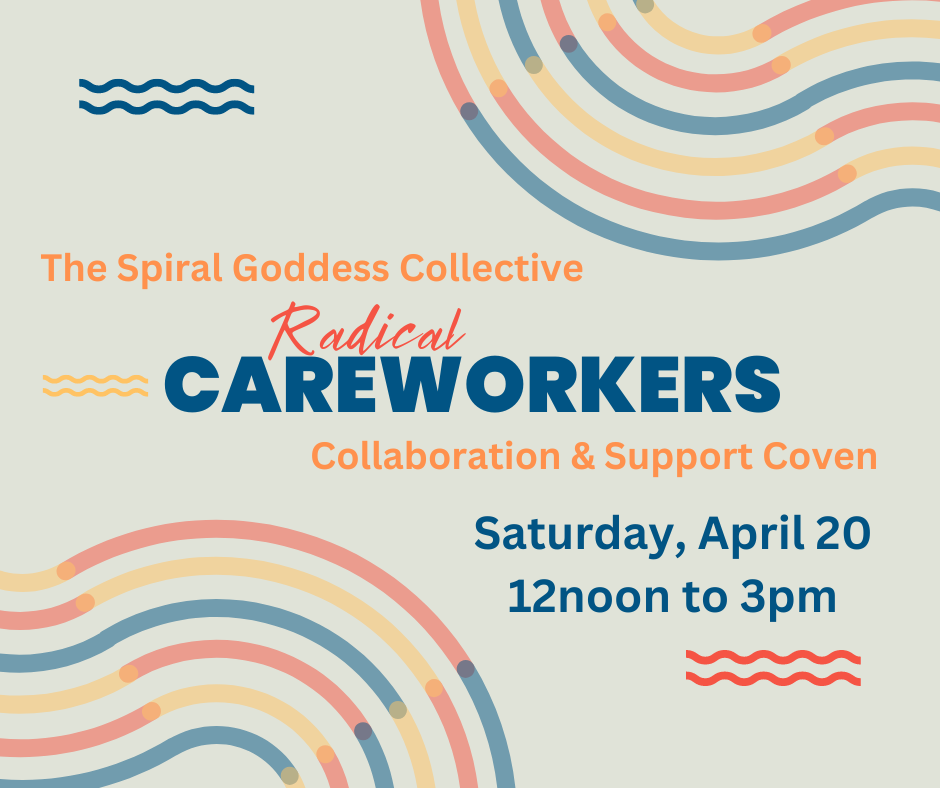
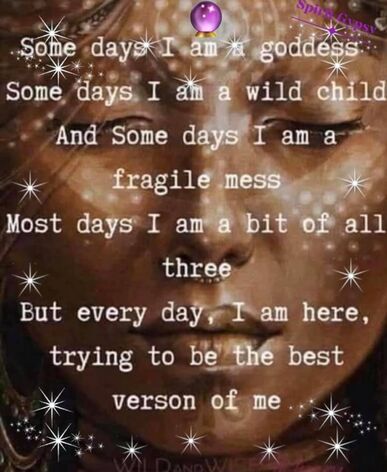
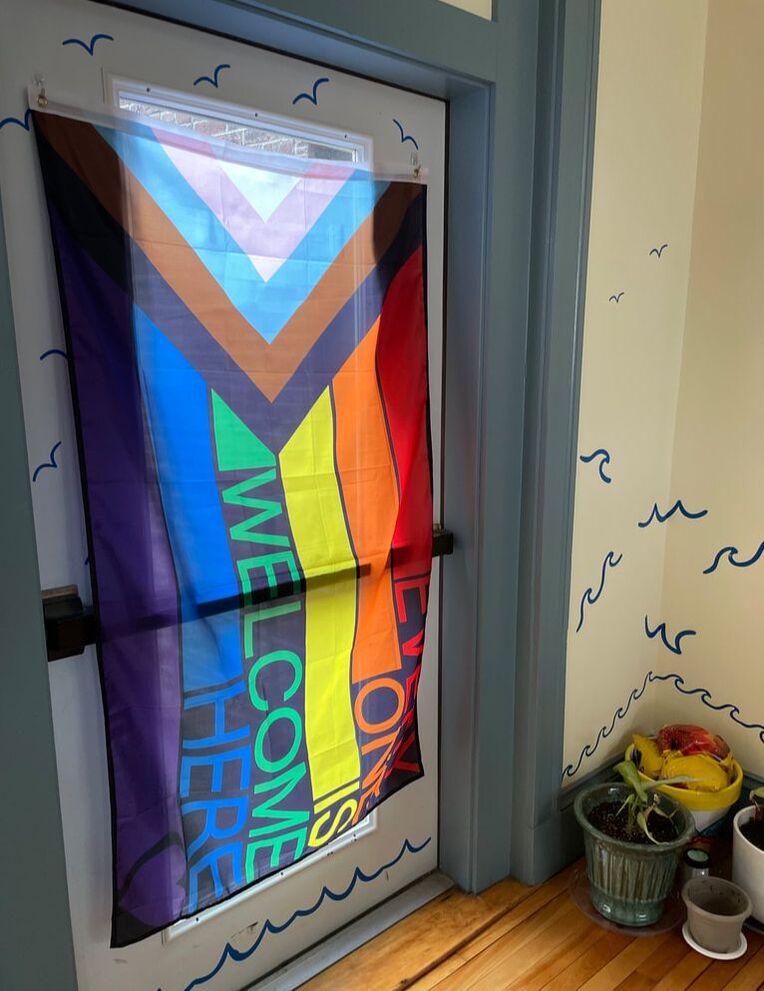
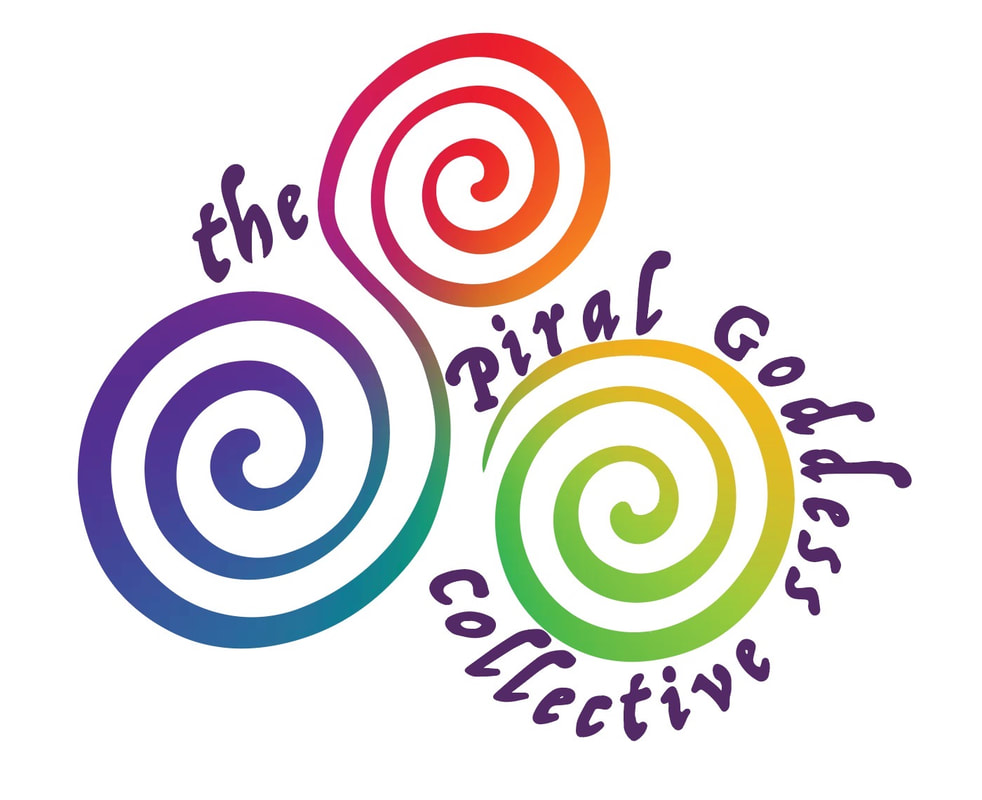
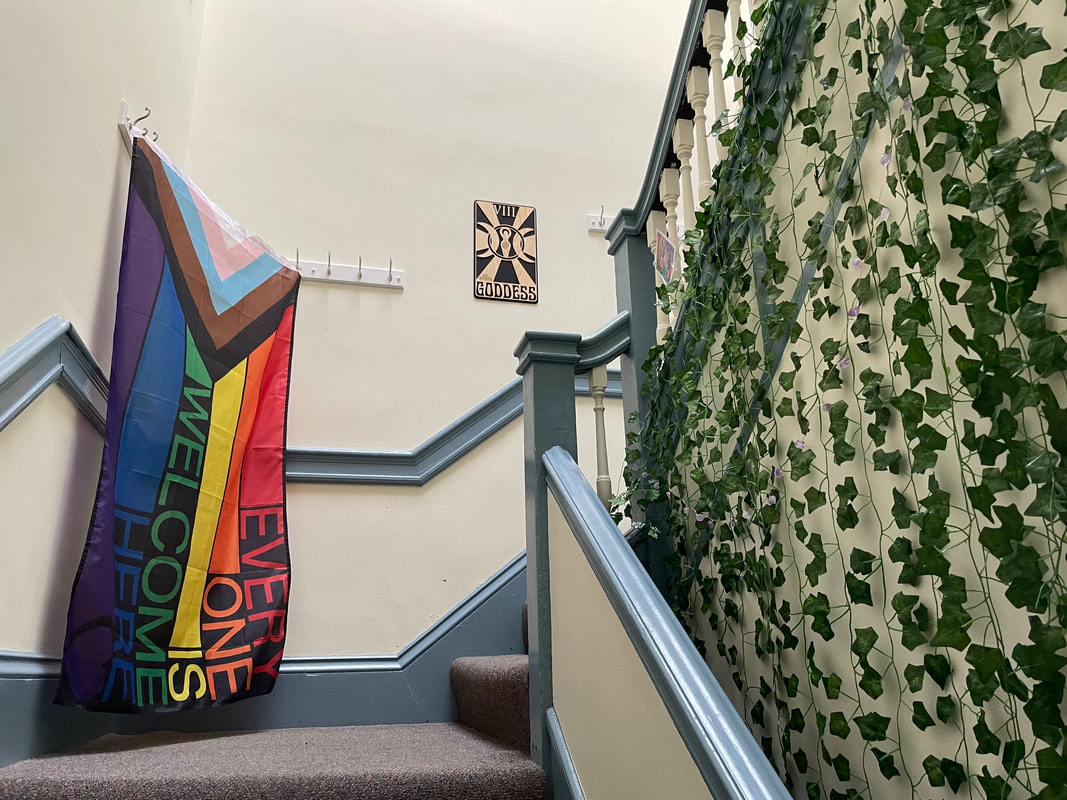
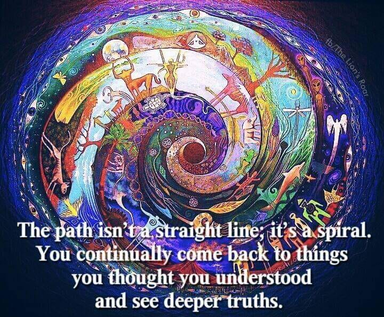
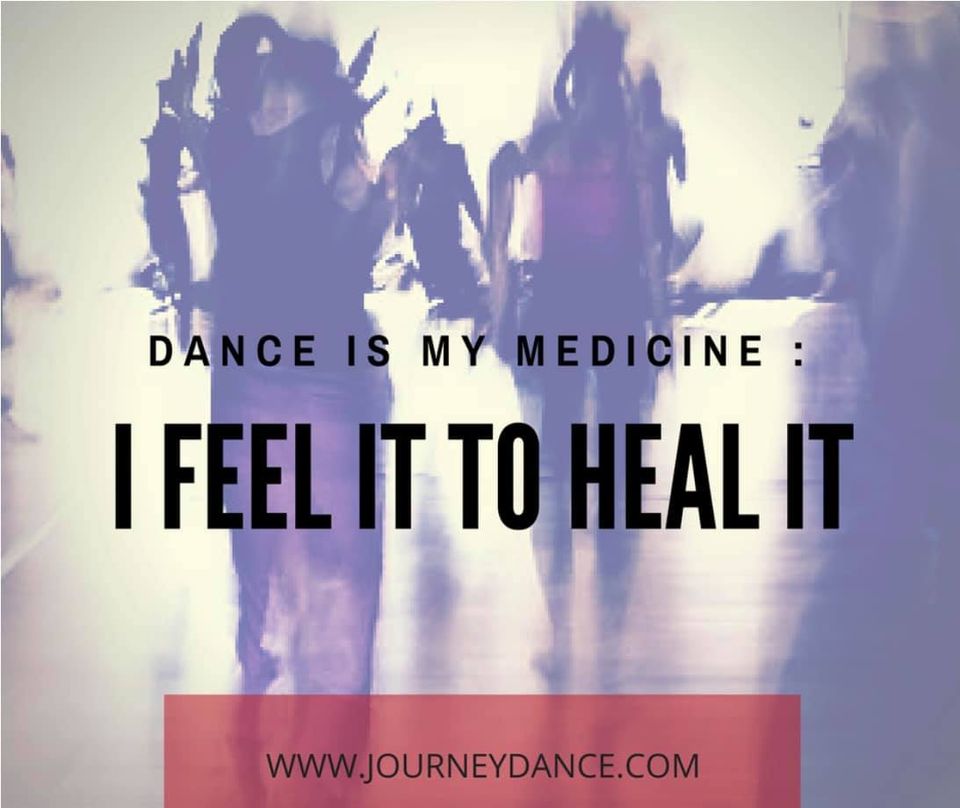
 RSS Feed
RSS Feed